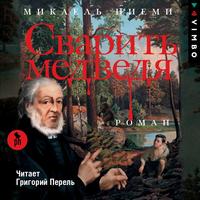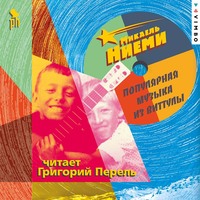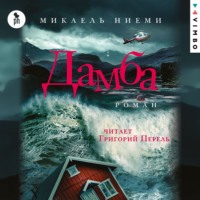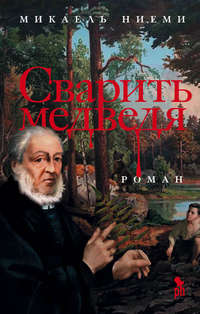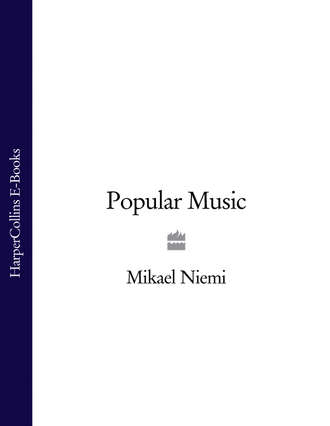
Полная версия
Popular Music
Then we each got a book and some crayons. I drew two aeroplanes crashing into each other. My friend leaned his head further and further back and soon dozed off with his mouth wide open. The plane window misted over as he breathed.
We eventually landed. All the passengers pushed and shoved their way out, and in the mêlée we lost touch with the old lady. I asked a bloke in a peaked cap if this was China. He shook his head and pointed us in the direction of an endless corridor where people were hurrying to and fro with their cases. We walked down it, and I had to ask politely several times before we came across some people with slitty eyes. I reckoned they must be going to China, and so we sat next to them and started waiting patiently.
After a while a man in a dark blue uniform came over to us and started asking questions. We were going to be in trouble, you could see it in his eyes. So I smiled shyly and pretended not to understand what he was saying.
‘Dad,’ I mumbled, pointing vaguely into the distance.
‘Wait here,’ he said, and strode off purposefully.
The moment he’d gone we moved to another bench. We soon discovered a black-haired Chinese girl in knee-length socks who was playing with a sort of plastic puzzle. It seemed to be fun. She laid the pieces out on the floor and showed us how you could make a tree, or a helicopter, or whatever you liked. She talked a lot and waved her thin arms around, and I think she said her name was Li. She sometimes pointed to a bench where an elderly bloke with stern eyes was reading a newspaper, next to an oldish girl with raven hair. I gathered she was the girl’s sister. She was eating a red, messy fruit, and kept wiping her mouth with a lace-edged napkin. When I went over to her she gave me a guarded look then offered me some pieces that had been neatly cut with a fruit knife. It tasted so sweet that I started to get butterflies in my stomach: I’d never tasted anything as good as that in my life, and I prodded my friend into trying some as well. He was ecstatic, his eyes half-closed. As a sort of thank you, he suddenly produced a matchbox, opened it and let the Chinese girl have a look inside.
Inside was a large, shimmering green beetle. Big sister tried to feed it a little piece of fruit, but then it flew off. Buzzing softly it flew over all the slitty-eyed people in their seats, circled round two ladies with long pins in their hair who gazed up in astonishment, investigated a mountain of suitcases with some carelessly wrapped reindeer antlers on top and headed off down the corridor just under the fluorescent lights, the same way we had come in. My friend looked sad, but I tried to console him with the thought that it was no doubt going back home to Pajala.
At that very moment there was an announcement over the loudspeakers, and everybody started moving. We packed the puzzle into the girl’s toy bag and passed through the gates in the midst of the jostling crowd. This aircraft was much bigger than the previous one. Instead of propellers this one had big drums on the wings that made a whistling sound when they started up. The noise grew and grew until it was a deafening roar, and after we’d taken off it reduced to a booming rumble.
We got to Frankfurt. And if my silent travelling companion hadn’t been taken short and started doing his number twos under a table, we would certainly, we would quite definitely, without a shadow of a doubt we would have got to China.
Chapter 2
—about living and dead faith, how nuts and bolts give rise to violence and a remarkable incident in Pajala church
I started seeing quite a lot of my taciturn friend, and before long I went home with him for the first time. His parents turned out to be Laestadians, members of the revivalist movement started by Lars Levi Laestadius a long time ago in Karesuando. He was only a little man, but his sermons were red-hot and peppered with almost as many curses as the sinners used when he attacked strong drink and debauchery with such force that the reverberations are still rumbling on even today.
Faith is not enough for a Laestadian. It’s not just a question of being baptised or confessing your sins or putting money in the collection plate. Your faith has to be a living faith. An old Laestadian preacher was once asked how he would describe this living faith. He considered for quite a while, then answered thoughtfully that it was like spending the whole of your life walking uphill.
The whole of your life walking uphill. It’s not easy to imagine that. You’re ambling casually along a narrow, winding country road in Tornedalen, like the one from Pajala to Muodoslompolo. It’s early summer and everything is fresh and green. The road passes through a forest of weather-beaten pines, and there’s a smell of mud and sun from the bog pools. Capercaillies are eating gravel in the ditches, then take off with wings flapping loudly and disappear into the undergrowth.
Soon you come to the first hill. You notice that you’re starting to climb and you can feel your calf muscles getting tense. But you don’t give it a second thought, it’s only a gentle slope after all. When you reach the top, quite soon, the road will level out again and the forest will be flat and dry on each side, with fluffy white reindeer moss in among the soaring tree trunks.
But you keep on climbing. The hill is longer than you thought. Your legs grow tired, you slow down and you look more and more impatiently for the crest which has to come at any moment now, surely.
But it never does come. The road just keeps on going up and up. The forest is the same as before, with stretches of bog and brushwood and here and there an ugly clear-felled patch. But it’s still uphill. It’s as if somebody has broken off the whole landscape and propped it up on one edge. Lifted up the far end and stuck something underneath it, just to annoy you. And you start to suspect that it will keep on going uphill for all the rest of the day. And the next day as well.
You keep on climbing stubbornly. The days gradually turn into weeks. Your legs start to feel like lead, and you keep wondering who it was that thought he’d be smart and chock up the landscape. It’s been pretty skilfully done, you have to admit that, grudgingly. But surely it will level out once you get past Parkajoki, there are limits after all. And you come to Parkajoki, but the road is still going uphill and so you think it will be Kitkiöjoki.
And the weeks turn into months. You work your way through them one stride at a time. And the snow starts falling. And it melts, and falls again. And between Kitkiöjoki and Kitkiöjärvi you’re pretty close to giving up. Your legs are like jelly, your hip joints ache, and your last reserves of energy are practically used up.
But you stop for a while to get your breath back, then keep battling on. Muodoslompolo can’t be far away now. Occasionally you come across somebody going in the other direction, that’s inevitable. Somebody skipping along merrily downhill on the way to Pajala. Some of them even have bikes. Sitting on the saddle without needing to pedal, free-wheeling all the way down. That does raise your doubts, you have to admit that. You have to fight a few inner battles.
Your strides get shorter and shorter. And the years pass. And now you must be nearly there, very nearly there. And it snows again, that’s how it should be. You peer through the snow flurries, and you think you might be able to see something. You think it might be getting a bit lighter just over there. The forest thins out, opens up. You can make out houses among the trees. It’s the village! It’s Muodoslompolo! And in mid-stride, one last short and shaky stride…
At the funeral the preacher bellows on about how you died in the living faith. No doubt about it. You died in the living faith, sie kuolit elävässä uskossa. You got to Muodoslompolo, we all witnessed it, and now at long last you are sitting on God the Father’s golden luggage carrier free-wheeling down the eternal slope accompanied by fanfares of angels.
The lad turned out to have a name: his mother called him Niila. Both his parents were strict Christians. Although their house was teeming with kids, there was a dreary, church-like silence wherever you went. Niila had two elder brothers and two younger sisters, and there was another child kicking away in his mother’s stomach. And as every child was a gift from God, there would be even more as time went by.
It was unreal for so many young children to be so quiet. They didn’t have many toys – most of what they did have were made of rough wood by their elder brothers, and unpainted. The kids just sat there playing with them, as silent as fish. It wasn’t only because they had been brought up in a religious way. It was something you found in other Tornedalen families: they’d simply stopped talking. Possibly because they were shy, possibly because they were angry. Possibly because they found talking unnecessary. The parents only opened their mouths when they were eating; at other times they would nod or point when they wanted something, and the children took after them.
I also kept quiet whenever I went to visit Niila. Children have an instinctive feel for that sort of thing. I took my shoes off and left them on the mat in the hall and tip-toed into the kitchen with head bowed and shoulders slightly hunched. I was greeted by a mass of silent eyes, from a rocking chair, from under the table, from by the pot cupboard. Looks that stared, then turned away, sneaked off round the kitchen walls and over the wooden floor but kept coming back to me. I stared back as hard as I could. The face of the youngest girl puckered up with fear, you could see her milk teeth gleaming in her gaping mouth and tears started to flow. She was sobbing, but even her sobs were silent. Her cheek muscles trembled and she clung on to her mother’s beskirted leg with her chubby little hands. Mum was wearing a headscarf even though she was indoors, and had her arms plunged up to the elbows in a mixing bowl. She was kneading vigorously, flour swirled up and was turned into gold dust by a sunbeam. She pretended not to notice that I was there, and Niila took that as a sign of approval. He led me over to a settee where his two elder brothers were exchanging nuts and bolts. Or perhaps it was some sort of game, involving a complicated pattern of shifting nuts and bolts around various compartments in a box. The brothers were growing increasingly annoyed with each other, and without speaking tried to wrench bolts from the other’s hands. A nut fell onto the floor and Niila snapped it up. Quick as a flash the eldest brother grabbed him by the hand and squeezed until Niila was in so much pain he could hardly breathe, and was forced to drop the nut into the transparent plastic box. Whereupon the younger brother turned it upside down. A clatter of steel as the contents rolled all over the wooden floor.
For one brief moment everything stood still. Every eye in the kitchen homed in on the brothers like rays of the sun through a magnifying glass. It was like when a film gets stuck in a projector, blackens over, goes crinkly and then turns white. I could feel the hatred even though I couldn’t understand it. The brothers lashed out and grabbed each other’s shirt front. Biceps bulging, they exerted the force of industrial magnets and the gap between them closed inexorably. All the time they stared at each other, coal-black pupils, two mirrors face to face with the distance between them expanding to infinity.
Then their mum threw the dish cloth. It flew across the kitchen trailing a thin wisp of flour behind it, a comet with a tail that squelched into the elder son’s forehead and stuck there. She eyed them threateningly, slowly wiping the dough from her hands. She had no desire to spend the whole evening sewing on shirt buttons. Reluctantly, the brothers let go. Then they stood up and left through the kitchen door.
Mum retrieved the dish cloth that had fallen to the floor, rinsed her hands, and went back to her kneading. Niila picked up all the nuts and bolts, put them in the plastic box and stuck the box in his pocket with a self-satisfied expression on his face. Then he glanced furtively out of the kitchen window.
The two brothers were standing in the middle of the path. Trading punches in rapid succession. Heavy punches jerking their crew-cut skulls around like turnips in a hopper. But no shouting, no taunts. Biff after biff on those low foreheads, on those potato noses, bash after bash on those red cabbage ears. The elder brother had a longer reach, the younger one had to slot in his blows. Blood poured from both their noses. It dripped down, splashed about, their knuckles were red. But still they kept going. Biff. Bash. Biff. Bash.
We were given juice and cinnamon buns straight out of the oven, so hot that we had to keep what we bit off between our teeth for a while before we could chew it. Then Niila started playing with the nuts and bolts. He emptied them out onto the settee, his fingers were trembling, and I realised he’d been longing to do this for ages. He sorted them out into the various compartments in the plastic box, then tipped them out, mixed them up and started all over again. I tried to help him but I could see he was annoyed, so after a while I left to go home. He didn’t even look up.
The brothers were still at it outside. The gravel had been kicked around by their feet to form a circular rampart. Still the same frenzied punches, the same silent hatred, but their movements were slower now, weariness was creeping in. Their shirts were soaked in sweat. Their faces were grey behind all the blood, powdered lightly with dust.
Then I noticed they had changed. They weren’t really boys any more. Their jaws had swollen up, their canines were sticking out from between their swollen lips. Their legs were shorter and more massive, like the thighs of a bear, and so big their trousers were splitting at the seams. Their fingernails had turned black and grown into claws. And then I realised it wasn’t dust on their faces, it was hair. They were growing a pelt, dark hair spreading over their fresh, boyish faces, down over their necks and inside their shirts.
I wanted to shout a warning. Rashly took a step towards them.
They stopped immediately. Turned to face me. Crouched slightly, sniffed at my scent. And then I saw their hunger. They were starving. They were desperate to eat, craved meat.
I stepped back, an icy chill ran down my spine. They growled. Started advancing shoulder to shoulder, two vigilant beasts of prey. They speeded up. Stepped outside their gravel circle. Dug in their claws then pounced.
A dark cloud loomed over me.
My scream was stifled. Terror, whimpering, the squeaking of a stuck piglet.
Ding. Ding dong.
Church bells.
The holy church bells. Ding dong. Ding dong. A white-clad being cycled into the courtyard, a shimmering figure ringing his bell in a cloud of floury light. He braked without a word. Grasped the beasts with his enormous fists, lifted them by the scruff of their necks and banged their turnip-heads together so hard that sparks flew.
‘Dad,’ they gasped, ‘Dad, Dad…’
The bright light faded, the father flung his sons to the ground, grabbed them by their ankles, one son in each hand and dragged them backwards and forwards over the gravel, smoothing out the surface with their front teeth until everything was nice and tidy again. And by the time he had finished, both brothers were crying their eyes out, sobbing, and they’d turned back into boys again. I raced home, galloped as fast as I could. And in my pocket I had a bolt.
Niila’s dad was called Isak and came from a big Laestadian family. Even as a little boy he’d been dragged along to prayer meetings in the smoke-filled hut where dark-suited smallholders and their wives in knotted headscarves sat bum to bum on the wooden benches. It was so cramped that their foreheads hit against the backs of those in front whenever they were possessed by the Holy Spirit and started rocking back and forth as they intoned prayers. Isak had sat there, hemmed in on every side, a delicate little boy among all those men and women being transformed before his very eyes. They started breathing more deeply, the air grew damp and fetid, their faces turned crimson, their glasses misted over, their noses started dripping as the two preachers sang louder and louder. Their words, those living words weaving the Truth thread by thread, images of evil, of perfidy, of sins that attempted to hide underground but were torn up by their hideous roots and shaken like worm-eaten turnips before the congregation. On the row in front was a little girl with plaits, fair golden hair gleaming in the darkness, squashed in by grown-up bodies riddled with dread. She was motionless, holding a doll pressed to her heart as the storm raged over her head. It was horrific to see her mother and father weeping. Watching her grown-up relatives being transformed, crushed. Sitting there hunched up, feeling the fall-out dripping all over her and thinking: it’s all my fault. It’s my fault. If only I’d been a bit better behaved. Isak had clenched his boyish hands tightly together, and inside them it felt as if a swarm of insects was creeping around. And he thought: if I open them we’ll all die. If I let them escape we’re all finished.
And then one day, one Sunday after a few years had passed, he crawled out onto the thin nocturnal ice. Everything crumbled away, his defences fell down. He was thirteen and could feel Satan beginning to grow deep down inside him, and filled with fear that was greater than the fear of being beaten, greater than the urge for self-preservation, he’d stood up in the middle of the prayer meeting and, holding onto people’s backs, he’d swayed back and forth before collapsing nose-first into the lap of Christ. Callused hands had been placed on his brow and his chest, it was a second baptism, that’s the way it was done. He had unbuttoned his heart and been drenched by the flood of his sins.
There was not a single dry eye in the congregation. They had witnessed a great event. The Almighty had issued a summons. The Lord had taken the boy with His very own hand, and then given him back.
Afterwards, when he learned to walk for the second time, as he stood there on trembling legs, they had propped him up. His corpulent mother had hugged him in the name and blood of Jesus, and her tears flowed down over his own face.
Obviously, he was destined to become a preacher.
Like most Laestadians Isak became a diligent worker. Felled trees and piled the trunks up on the frozen river during the winter, accompanied the logs down to the sawmills in the estuary when the ice melted in the spring, clearing jams on the way, and looked after the cows and potato fields on his parents’ smallholding during the summer. Worked hard and made few demands, steered well clear of strong drink, gambling and Communism. That sometimes caused him a few problems with his lumberjack colleagues, but he took their mockery as a challenge to be overcome, and didn’t say a word during the working week, merely read books of sermons.
But on Sundays he would cleanse himself with saunas and prayers, and put on his white shirt and dark suit. During the prayer meetings he could cut loose at last, sail forth to attack filth and the Devil, brandish the Good Lord’s two-edged sword, aim His law and gospel truth at all the world’s sinners, the liars, lechers, hypocrites, the foul-mouthed, boozers, wife-beaters and Communists who flourished in the accursed valley of the River Torne like lice in a blanket.
His face was young, energetic and smooth-shaven. Eyes deep-set. With consummate skill he grabbed the attention of his congregation, and soon plighted his troth with a fellow-believer, a shy and well-polished Finnish girl from the Pello district, smelling of soap.
But when the children started to come, he was forsaken by God. One day there was nothing but silence. Nobody answered his pleas.
He was left with nothing but confusion, tottering on the edge of the abyss. Filled with sorrow. And festering malice. He started to sin, just to discover what it felt like. Minor little wicked acts, aimed at his nearest and dearest. When it dawned on him that he quite enjoyed it, he kept going. Worried members of his church tried to engage him in serious conversations, but he put the Devil’s curse on them. They turned their backs on him, and did not return.
But despite being abandoned, despite feeling hollow, he still regarded himself as a believer. He maintained the rituals, and brought up his children in accordance with the Scriptures. But he replaced the Good Lord by himself. And that was the worst form of Laestadianism, the nastiest, the most ruthless. Laestadianism without God.
This was the frosty landscape in which Niila grew up. Like many children in a hostile environment, he learnt how to survive by not being noticed. That was one of the things I observed the very first time we met in the playground: his ability to move without making a sound. The chameleon-like way in which he seemed to take on the background colour, making him practically invisible. He was typical of the self-effacing inhabitants of Tornedalen. You hunch yourself up in order to keep warm. Your flesh hardens, you get stiff shoulder muscles that start to ache when you reach middle age. You take shorter steps when you walk, you breathe less deeply and your skin turns slightly grey through lack of oxygen. The meek of Tornedalen never run away when attacked, because there’s no point. They just huddle up and hope it will pass. In public assemblies they always sit at the back, something you can often observe at cultural events in Tornedalen: between the spotlights on stage and the audience in the stalls are ten or more rows of empty seats, while the back rows are crammed full.
Niila had lots of little wounds on his forearms that never healed. I eventually realised that he used to scratch himself. It was unconscious, his filthy fingernails just made their own way there and dug themselves in. As soon as a scab formed, he would pick at it, prise it up and break it loose then flick it away with a snapping noise. Sometimes they would land on me, sometimes he just ate them with a faraway look on his face. I’m not sure which I found most disgusting. When we were round at our place I tried to tell him off about it, but he just gaped at me with a look of uncomprehending surprise. And before long he was at it again.
Nevertheless, the oddest thing of all about Niila was that he never spoke. He was five years old after all. Sometimes he opened his mouth and seemed to be about to come out with something, you could hear the lump of phlegm inside his throat starting to move. There would be a sort of throat-clearing, a gob that seemed to be breaking loose. But then he would change his mind and look scared. He could understand what I said, that was obvious: there was nothing wrong with his head. But something had got stuck.
No doubt it was significant that his mother was from Finland. She had never been a talkative woman and came from a country that had been torn to shreds by civil war, the Winter War and the Continuation War while her well-fed neighbour to the west had been busy selling iron ore to the Germans and growing rich. She felt inferior. She wanted to give her children what she had never had. They would be real Swedes, and hence she wanted to teach them Swedish rather than her native Finnish. But as she knew practically no Swedish, she kept quiet.
When Niila came round to our place we often used to sit in the kitchen because he liked the radio. My mum used to have the radio mumbling away in the background all day, something unknown in his house. It didn’t much matter what was on, so we had a pot-pourri of pop music, Women’s Hour, Down Your Way, bell-ringing from Stockholm, language courses and church services. I never used to listen, it all went in one ear and out of the other. But Niila seemed to be thrilled to bits just by the sound, the fact that it was never really quiet.
One afternoon I made a decision. I would teach Niila to talk. I caught his eye, pointed to myself and said:


